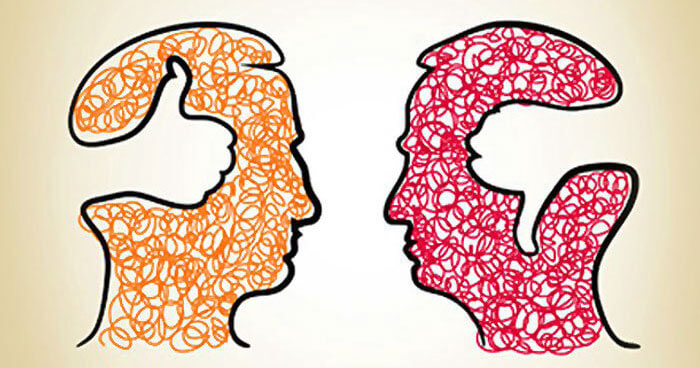No Trust, No Community

The Gist
Online Trust in Organizations and People can be increased by paying attention in a certain way to the mix: Authenticity, Responsiveness, Ease of Use, Language, Culture and Accessibility. It is debated whether you can organize it but you can definitely influence it. How I get to that conclusion you can read below.
“What happened?”
More than a week has gone by since we had our Community Leaders Forum event. It took me a while to digest what happened. For quite some time I’ve been running communities and helping other customers in either their strategy, their building or their operation of the community in pretty much all aspects. As part of our vision to give back what we know and pass on our knowledge to others, we thought it best to organize online meetups and discuss the topics we need to discuss to make your communities more successful. The theme that really bothered me for a long time as “just-not-being-on-the-table” is the concept of trust. So, I set out on a quest to find the answers to the question: How do you model and organize trust? What are the components, how do they interact and how does that help me drive a successful community. Below is what I found. It was a surprise.

Opposite of what?
For a long time I had this idea that the opposite of Trust is Control. You either trust people or you try to control them. The reason I have this relation in my head is that I always need to convince marketeers and sr. management that you cannot run a community by trying to control the conversation.
Talking to my partners at 3sides, I just could not hold on to that position. Sometimes you just need to abandon your own convictions. So I set out to find out what the opposite of Trust was and here is one of the first roots of why it is hard to talk about trust: Trust is just not very well defined. There are more than 2000 antonyms (opposites) for trust. So I settled for the Mickey Mouse logic: The opposite of Trust is No Trust and the opposite of Control is Freedom. If there is no trust, then people try to control you. And that is exactly one of the reasons why so many communities do not achieve their potential. You have to let go but don't be stupid.
The Science of Trust
You are putting money into your community. Left-right-or-center, you want to make the community work and experience the value of it. For that, you want evidence of what will work and what will not work. Everybody in their personal life will know that if you do not trust a person, nothing will happen. Organizing trust is therefore a mandatory ingredient for things “to happen”. Despite the populist trends to ignore science and craft your own reality, most people simply rely on scientific evidence. So, what IS the science of Trust? What are the ingredients and how do you organize it? With that question my daughter and I went on a research hunt (She is in university and has access to all scientific papers). To my astonishment we found only 3 articles about trust: 1995 a model about a model of Trust, 2014 a model about Online Trust and 2019 the effect of gaming on Trust. The residu of this research is that there are hints of elements influencing trust and their impact on each other in both utilitarian and hedonic usage. The amount of research does not give you a full spectrum answer. For a world that runs on business that depends solely on trust, that was a disappointing result. So much for the progress in science.
The Code of Trust
So, I figured I would go online and try to find material. I finally bought a book “The Code of Trust” from a FBI trainer having to deal with trust as a way to get people to reveal vital information. The residu of that book is summed:
- It is harder to trust people then to love them
- Being trusted is an honor deserved
- Manipulation is about pushing people. Trust is about leading them (which is bit of a paradox for a FBI trainer)
- Getting people to like you is not about how you make them feel about you but about how you make them feel about themselves
- You are born with a reptilian brain to fear. Not to trust. Fear is a survival instrument. Trust is something you need to learn.
Trust by the Seat-of-the-Pants
Armed with my findings and research results I went into a meeting with 25 Community Managers presented my finding, took a position to debate and watched the chemistry unfold. Most people were just talking explicitly about this topic for the first time. I had a partner in crime because one of my CM (@Ellen Bergdahl) did prior a stunning presentation about MacMillan Cancer Support and made the segway into the topic.
The debate went like a wildfire thru the ring and we settled for the two statements at the head of this blog. I’m still digesting what happened there and what it means. I did not expect to settle down on an agreed model that would drive the organization of trust. What I saw instead was a primordial reaction of professionals that were searching for an honest answer, knew it was important, but did not come to a real conclusion.
To be continued of course. If you want to join that conversation or want to know more about what I found, let me know.








